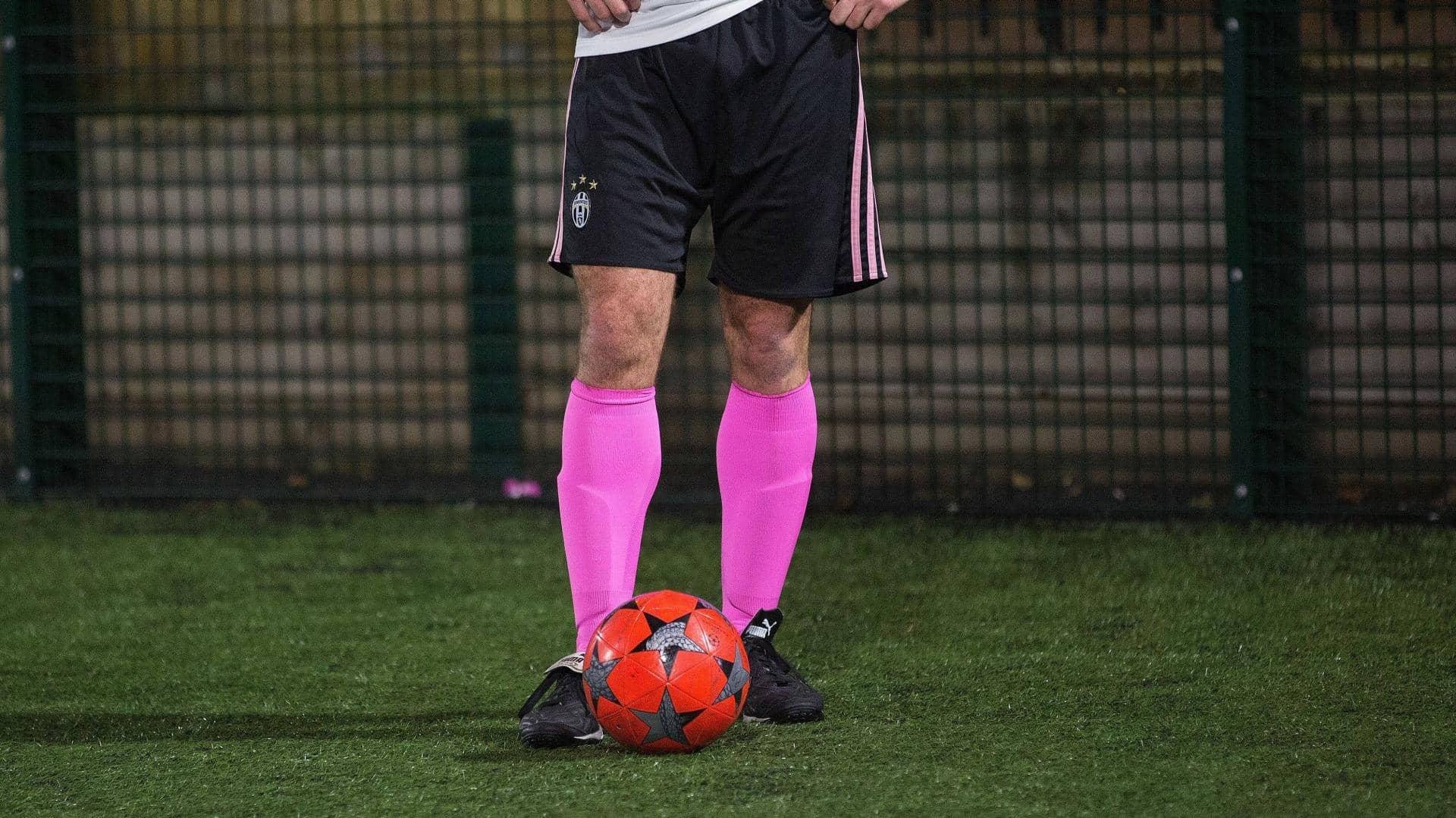
Stonewall FC – the world’s best gay football team
In 27 years, Stonewall FC has evolved from a few friends meeting for a kick about in Hyde Park to the most successful gay football team in the world. We went to watch the team train and talked with them about changing perceptions, winning international tournaments and its long-standing partnership with Barclays.
“One of the main things we are trying to do is challenge the perception that gay people shouldn’t play football, and we do that with our performance on the pitch every single Saturday.”
Stonewall FC manager Eric Najib talks with the intensity and passion of a Premier League manager, which will come as no surprise to anyone who is familiar with the club’s decorated history. The amateur gay football team has won nine out of the last 10 International Gay and Lesbian Football Association Championships – making them the most successful gay football team in the world. The club also competes in the Middlesex County League Premier Division, one of the highest levels of amateur football.
Although winning football games will always be top of the club’s priority list, spending any time with Eric makes it clear that Stonewall FC is about so much more than that. As well as winning on a Saturday, the club is simultaneously building a community in which gay footballers can feel comfortable – not to mention proactively fighting against homophobia within the game.
“Well that’s our biggest challenge,” says Eric, who’s been with the club in a playing and managerial capacity since 1991, “balancing what we want to do as a football team with what we want to do in the community.”
Stonewall’s story dates back to 1991 when the founders placed an advert in a gay publication looking for like-minded people to play football with. Their aim was to provide a safe space for gay people to enjoy football, and it all began with a simple kick about in London’s Hyde Park.
Club captain Doug Edward is one of the many people that Stonewall FC appealed to, and says he first came in to contact with the club two years after coming out.
"I was at a Pride march and saw people playing football and thought to myself, ‘what’s all this about?’. So I came down to training for a bit of five-a-side and it just grew from there."
Doug – who has been with the club for 15 years – is the perfect case study for Stonewall FC. The side reignited his passion for football after he’d previously drifted away from the game.
"I’ve always loved football but after coming out in my early twenties I stopped playing. I didn’t feel comfortable with it any more, I felt like there wasn’t a club for me. But Stonewall changed all that, and I’ve been here ever since."
Since the birth of Stonewall FC a lot has changed, both in the footballing world and wider society. In the year the club was founded, The World Health Organisation still classified same sex attraction as a mental illness, and it wasn’t until 1997 that the UK saw its first openly lesbian MP.
Eric believes these changes in society are reflected in the game: “When I first joined Stonewall FC it was clear that there were certain teams in the league who didn’t feel comfortable playing us. They’d stay in the dressing room until we’d left the building, and would refuse to share showers with us.
"Thankfully things have got a lot better over the years, due to the relationships that we have built with other clubs. Of course you still get the odd idiotic comment, but it’s improving.
"Through our hard work we’ve shown people that we are just normal amateur footballers that happen to be gay."
I’ve always loved football but after coming out in my early twenties I stopped playing. I didn’t feel comfortable with it any more, I felt like there wasn’t a club for me. But Stonewall changed all that, and I’ve been here ever since.
The players are aware that a big step towards achieving equality in the game would be the presence of a high-profile gay footballer in the UK. It’s something not seen since former Norwich City striker Justin Fashanu came out in 1991. The revelation is thought to have considerably damaged Fashanu’s football career, and he suffered years of homophobic abuse. In 1998 Fashanu tragically committed suicide.
“Having a senior footballer come out would make all the difference,” says Doug. “but it would be verging on martyrdom, and be such a risk for the individual involved.
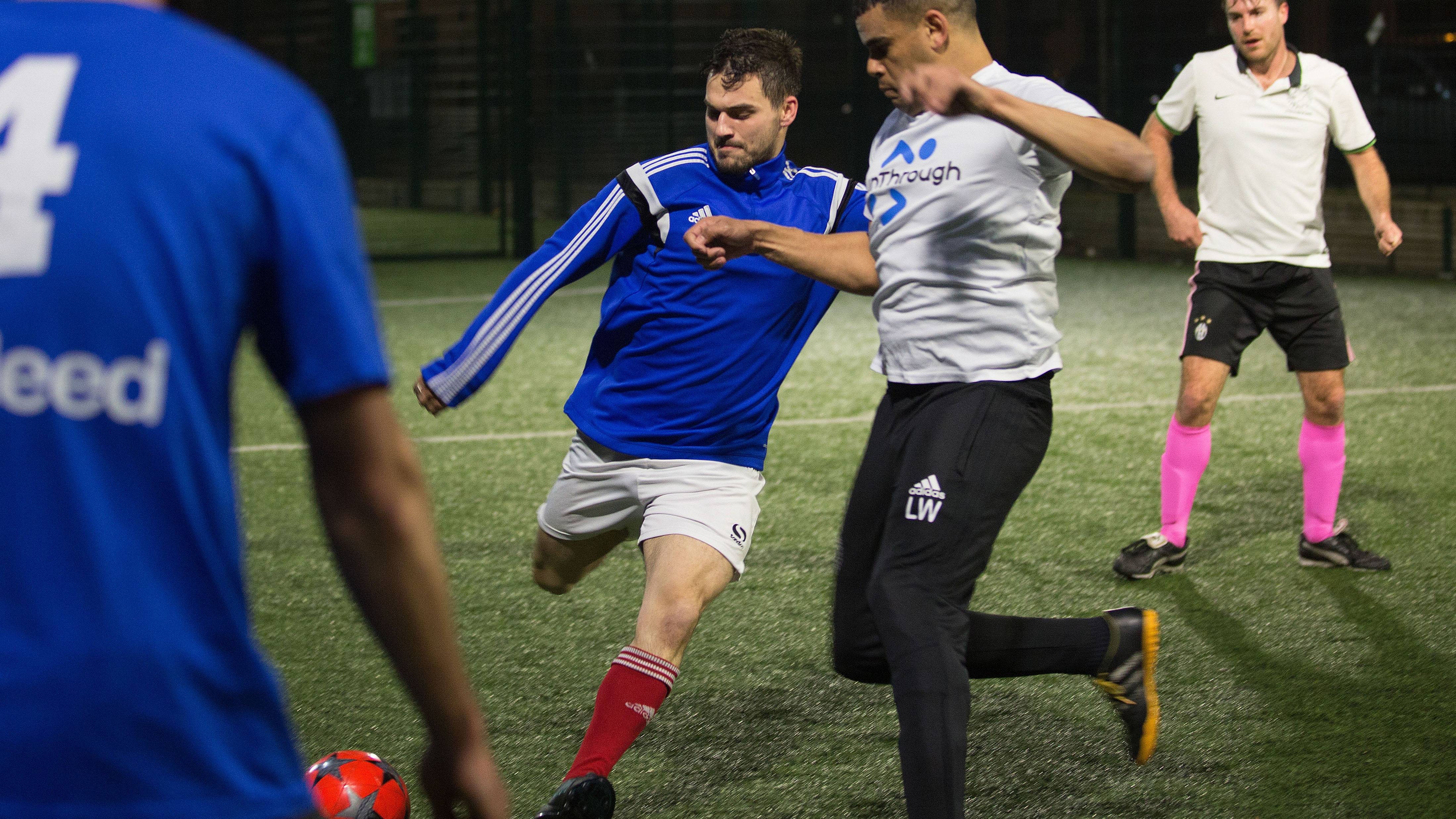
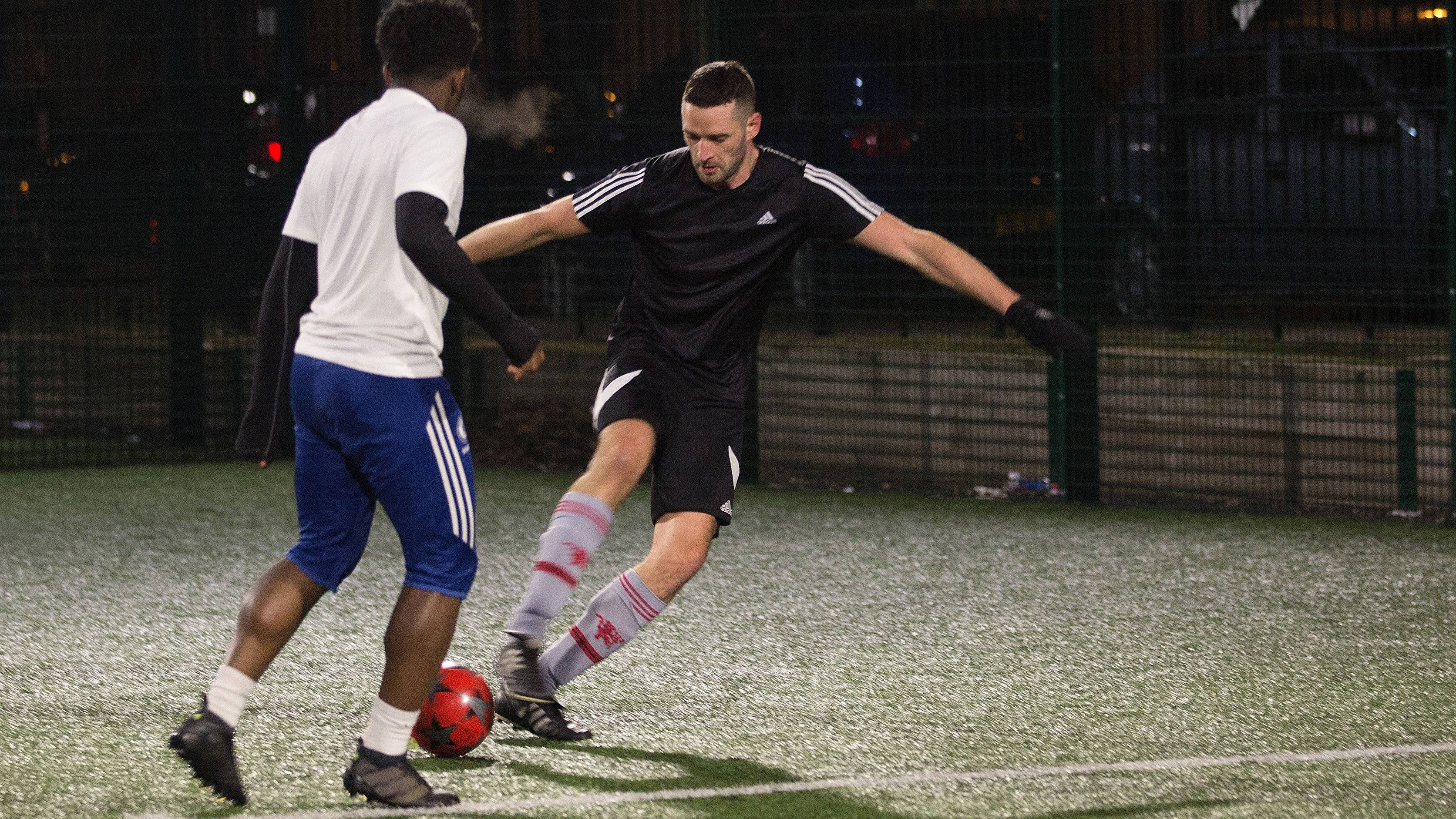
“However I do believe we have come a long way – just look at the support we have received from the FA and others like Manchester United and Arsenal.”
For an amateur side like Stonewall, support from major corporations is vital for growth – and was something Barclays was delighted to help with when the bank stepped forward to sponsor the team in 2007.
“We’ll always be very grateful to Barclays who sponsored us for seven or eight seasons,” says Eric, “it gave us financial stability and greatly enhanced our brand both on and off the pitch. It’s no coincidence that the support from Barclays coincided with our most successful period on the pitch.”
Doug agrees, and says Barclays was instrumental in the growth of the club: “We went from having a local pub sponsor to a global brand on our shirt. It took us to a different level, on an international scale.”
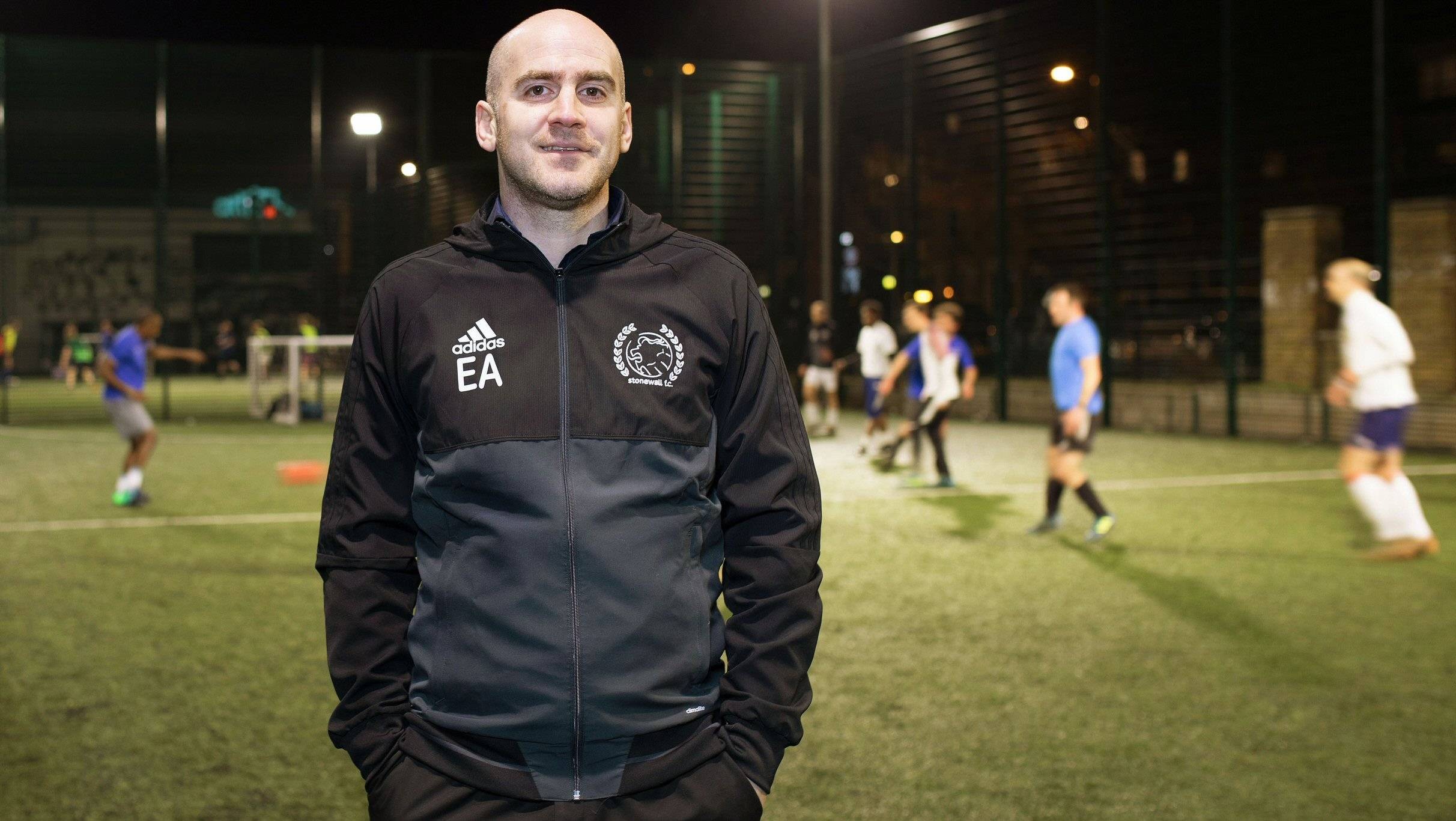
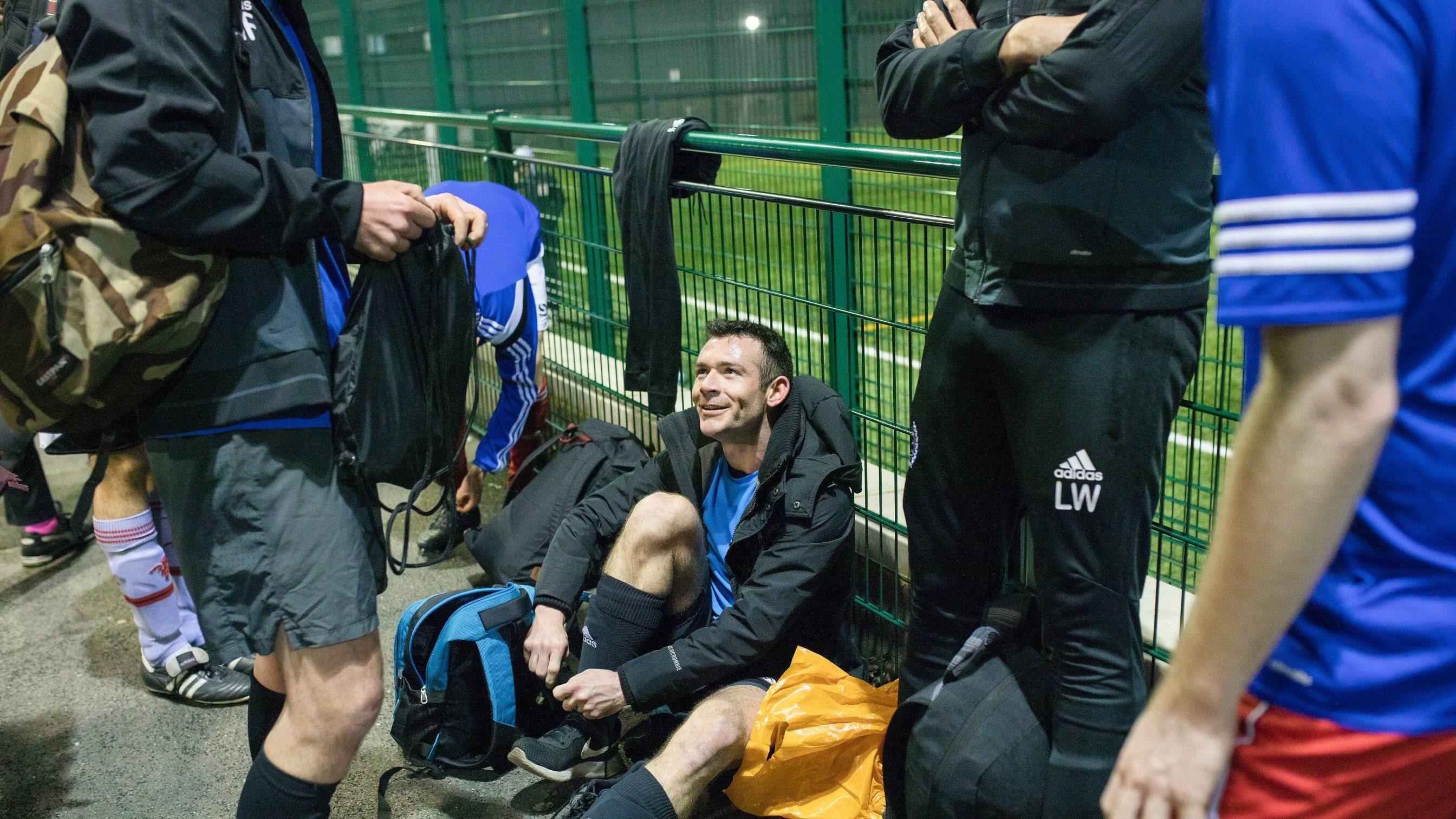
We’ll always be very grateful to Barclays who sponsored us for seven or eight seasons, it gave us financial stability and greatly enhanced our brand both on and off the pitch. It’s no coincidence that the support from Barclays coincided with our most successful period on the pitch.
Barclays has continued its support of Stonewall FC through the Rainbow Laces campaign which works hard to drive equality in sport for the LGBT community. The campaign encourages everyone in sport – whether at a grassroots or a professional level – to don rainbow laces to show their support for equality for all players and fans.
According to Doug, the bank’s commitment to equality is not the only thing the two organisations have in common: “There has always been a great synergy between Stonewall FC and Barclays. We both value winning and excellence, which is why our partnership has worked so well.”
So what next, for a team that has won a staggering nine international tournaments? For Doug, the answer is simple: “We want to continue to grow and climb up the league table, while making a difference in the community. We’ve been here for 27 years, let’s have 27 more.”